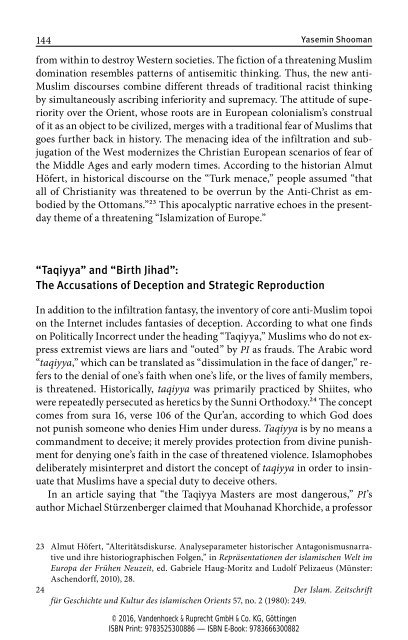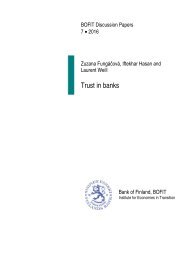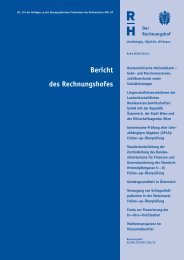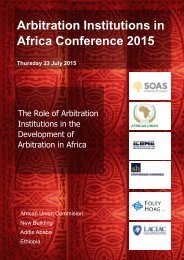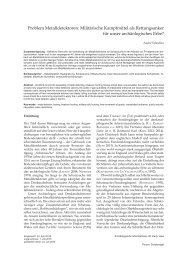Media and Minorities
9783666300882_ruhrmann_media_ebook_034247
9783666300882_ruhrmann_media_ebook_034247
Create successful ePaper yourself
Turn your PDF publications into a flip-book with our unique Google optimized e-Paper software.
144<br />
Yasemin Shooman<br />
from within to destroy Western societies. The fiction of a threatening Muslim<br />
domination resembles patterns of antisemitic thinking. Thus, the new anti-<br />
Muslim discourses combine different threads of traditional racist thinking<br />
by simultaneously ascribing inferiority <strong>and</strong> supremacy. The attitude of superiority<br />
over the Orient, whose roots are in European colonialism’s construal<br />
of it as an object to be civilized, merges with a traditional fear of Muslims that<br />
goes further back in history. The menacing idea of the infiltration <strong>and</strong> subjugation<br />
of the West modernizes the Christian European scenarios of fear of<br />
the Middle Ages <strong>and</strong> early modern times. According to the historian Almut<br />
Höfert, in historical discourse on the “Turk menace,” people assumed “that<br />
all of Christianity was threatened to be overrun by the Anti-Christ as embodied<br />
by the Ottomans.”23 This apocalyptic narrative echoes in the presentday<br />
theme of a threatening “Islamization of Europe.”<br />
“Taqiyya” <strong>and</strong> “Birth Jihad”:<br />
The Accusations of Deception <strong>and</strong> Strategic Reproduction<br />
In addition to the infiltration fantasy, the inventory of core anti-Muslim topoi<br />
on the Internet includes fantasies of deception. According to what one finds<br />
on Politically Incorrect under the heading “Taqiyya,” Muslims who do not express<br />
extremist views are liars <strong>and</strong> “outed” by PI as frauds. The Arabic word<br />
“taqiyya,” which can be translated as “dissimulation in the face of danger,” refers<br />
to the denial of one’s faith when one’s life, or the lives of family members,<br />
is threatened. Historically, taqiyya was primarily practiced by Shiites, who<br />
were repeatedly persecuted as heretics by the Sunni Orthodoxy.24 The concept<br />
comes from sura 16, verse 106 of the Qur’an, according to which God does<br />
not punish someone who denies Him under duress. Taqiyya is by no means a<br />
comm<strong>and</strong>ment to deceive; it merely provides protection from divine punishment<br />
for denying one’s faith in the case of threatened violence. Islamophobes<br />
deliberately misinterpret <strong>and</strong> distort the concept of taqiyya in order to insinuate<br />
that Muslims have a special duty to deceive others.<br />
In an article saying that “the Taqiyya Masters are most dangerous,” PI’s<br />
author Michael Stürzenberger claimed that Mouhanad Khorchide, a professor<br />
23 Almut Höfert, “Alteritätsdiskurse. Analyseparameter historischer Antagonismusnarrative<br />
und ihre historiographischen Folgen,” in Repräsentationen der islamischen Welt im<br />
Europa der Frühen Neuzeit, ed. Gabriele Haug-Moritz <strong>and</strong> Ludolf Pelizaeus (Münster:<br />
Aschendorff, 2010), 28.<br />
24 Der Islam. Zeitschrift<br />
für Geschichte und Kultur des islamischen Orients 57, no. 2 (1980): 249.<br />
© 2016, V<strong>and</strong>enhoeck & Ruprecht GmbH & Co. KG, Göttingen<br />
ISBN Print: 9783525300886 — ISBN E-Book: 9783666300882


